CCUS 101: Carbon Capture, Sequestration, Utilization & Storage
February 19, 2025 | Online :: Central Time
“EUCI offers excellent introductory level courses for a broad range of relevant current day utility industry topics.” Major Permitting Specialist, National Grid
“EUCI events are a great way to connect with top industry experts.” Director, Gulf Coast Energy Network
“EUCI provides a high quality product that is very useful in better understanding the energy market and increasing business acumen.” Sr. Director – Office of Clean Energy, FPL
Carbon capture, sequestration, utilization, and storage (CCUS) is essential in meeting net-zero GHG emission goals. This one-day course on CCUS provides a comprehensive overview of the key aspects of CCUS technology and its role in mitigating greenhouse gas emissions.
Key points to be addressed:
- Carbon capture, utilization, and storage concepts, including the significance of CCUS in addressing climate change.
- Retrofitting power plants with exhaust gas recirculation (EGR) technology to reduce carbon capture costs and significantly lower CO2 emissions.
- Various CO2 capture methods, their efficiency, applications, and technological advancements.
- CO2 storage site characterization, injection operations, and the science behind safe and effective storage.
- Federal and state policies, regulations, and incentives that support CCUS development and implementation.
- Infrastructure, challenges, and best practices for transporting CO2 via pipelines.
- Class 6 Underground Injection Control (UIC) permitting processes and associated challenges.
- The role and benefits of regional storage hubs and shared infrastructure in CCUS deployment.
By the end of this course, attendees will have gained valuable insights into the fundamentals of CCUS, its policy landscape, technical aspects, and the broader societal and environmental implications.
Join us today to learn from the leading instructors and industry experts with hands-on experience in the CCUS field to gain a comprehensive understanding of CCUS and to dive deeper into the critical aspects of CCUS: from fundamental principles to advanced technical aspects.
Learning Outcomes
- Identify the economic and environmental value proposition of Carbon Capture, Utilization, and Storage (CCUS) technologies for various industries.
- Gain awareness of key policies and incentives that support CCUS adoption.
- Explore the key provisions and benefits of the 45Q tax credit, how it incentivizes carbon capture and storage projects.
- Review the implications of 45Q Tax Credit for investment and policy in the CCUS sector.
- Compare common challenges and strategic approaches to successfully implementing CCUS projects.
- Differentiate between the efficiency, costs, and scalability of key CO2 capture technologies.
- Identify the sectors where CO2 capture technologies are most commonly applied and their relevance to specific industries.
- Assess the technical challenges and operational requirements involved in implementing CO2 capture systems.
- Discuss the key components and design principles of CO2 transportation pipelines.
- Identify the regulatory frameworks and safety protocols that govern the construction and operation of CO2
- Explore best practices and technological innovations to overcome challenges in CO2
- Outline the concept and importance of regional CO2 storage hubs in supporting carbon capture and storage (CCS) networks.
- Identify the benefits and challenges of shared infrastructure for CO2 transport and storage across multiple industries and regions.
- Explore strategies for fostering collaboration among industries, governments, and communities in developing shared CCS infrastructure.
- Outline best practices for communicating with stakeholders to build trust and transparency.
Wednesday, February 19, 2025 : Central Time
8:45 – 9:00 a.m.
Log In and Welcome
12:00 – 1:00 p.m.
Lunch Break
9:00 a.m. – 4:15 p.m.
Conference Timing
9:00 – 9:30 a.m. :: Value Proposition and Strategy with Carbon Capture & Storage Technologies
This session will explore the economic and environmental value proposition of carbon capture and storage technologies, outlining strategic approaches for their implementation in various industries.
Richard Esposito, PhD, R&D Program Manager, Net Zero Emissions, Southern Company
9:30 – 10:00 a.m. :: Regulatory Developments and Federal/State Incentives
Gain insights into the key policy frameworks and incentives at both federal and state levels that drive carbon capture, utilization, and storage initiatives, providing a comprehensive understanding of the regulatory landscape.
This session equips attendees with essential knowledge to navigate and leverage government support for CCUS projects and initiatives.
Ben Wernette, PhD, Principal Scientist and Strategic Partnerships Lead, Southern States Energy Board
10:00 – 10:15 a.m. :: Morning Break
10:15 – 10:45 a.m. :: Overview of CO2 Capture Technologies
This session will provide an overview of various CO2 capture technologies, highlighting their methods, efficiencies, and applications across different sectors. It will also include an analysis of the retrofitting of Alabama Power’s James M. Barry Electric Generating Plant with GE Vernova’s exhaust gas recirculation (EGR) system, which demonstrated a 6% reduction in the total cost of carbon capture and enabled up to 95% CO2 emissions reduction.
John Carroll, R&D, Principal CO2 Capture Engineer, Southern Company
10:45 – 11:15 a.m. :: Overview of CO2 Storage Site Characterization and Injection Operations
This session will cover the processes involved in CO2 storage site characterization and injection operations, emphasizing the criteria for site selection and the technical aspects of safe CO2 injection.
Jack Pashin, PhD, Professor, Devon Chair of Basin Research in the Boone Pickens School of Geology, Oklahoma State University
11:15 a.m. – 12:00 p.m. :: Morning Q&A
This session is a forum for addressing questions and engaging in an in-depth dialogue, ensuring a deeper understanding of carbon capture, utilization, and storage concepts.
Richard Esposito, PhD, R&D Program Manager, Net Zero Emissions, Southern Company
Ben Wernette, PhD, Principal Scientist and Strategic Partnerships Lead, Southern States Energy Board
John Carroll, R&D, Principal CO2 Capture Engineer, Southern Company
Jack Pashin, PhD, Professor, Devon Chair of Basin Research in the Boone Pickens School of Geology, Oklahoma State University
12:00 – 1:00 p.m. :: Lunch Break
1:00 – 1:30 p.m. :: Overview of CO2 Pipelines and Challenges
This session will review the infrastructure and operational aspects of CO2 pipelines, addressing the challenges associated with their design, construction, and maintenance.
Greg Johnston, Managing Partner, C2C Carbon
1:30 – 2:00 p.m. :: Overview of Class 6 Underground Injection Control (UIC) Permitting and Challenges
This session examines Class 6 UIC permitting processes and the challenges involved in regulatory compliance and site management for CO2 injection.
Ben Roth, Senior Geologist, Advanced Resources International
2:00 – 2:15 p.m. :: Afternoon Break
2:15 – 2:45 p.m. :: Regional Storage Hubs and Shared Infrastructure
This session will explore the concept of regional storage hubs and the benefits of shared infrastructure for CO2 storage, highlighting collaborative approaches to enhance efficiency and scalability.
Ben Wernette, PhD, Principal Scientist and Strategic Partnerships Lead, Southern States Energy Board
2:45 – 3:15 p.m. :: Successful Stakeholder Engagement Methods
This session provides insights into effective communication, collaboration, and building support from various groups, critical for the success of CCUS projects.
Denise Hills, Project Manager, Advanced Resources International
3:15 – 4:15 p.m. :: Review and Afternoon Q&A
Greg Johnston, Managing Partner, C2C Carbon
Ben Roth, Senior Geologist, Advanced Resources International
Ben Wernette, PhD, Principal Scientist and Strategic Partnerships Lead, Southern States Energy Board
Denise Hills, Project Manager, Advanced Resources International
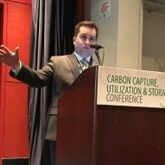 John Carroll, R&D, Principal CO2 Capture Engineer, Southern Company
John Carroll, R&D, Principal CO2 Capture Engineer, Southern Company
Responsible for project development, budgeting and scheduling, project execution, and closeout coordination for technology developers at the National Carbon Capture Center and in Southern Company R&D.
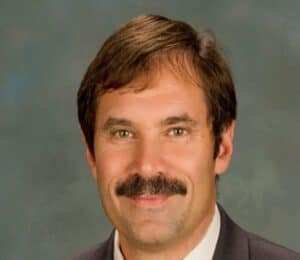 Richard Esposito, R&D Program Manager – Geosciences & Carbon Management, Research & Development, Southern Company
Richard Esposito, R&D Program Manager – Geosciences & Carbon Management, Research & Development, Southern Company
Experienced R&D program manager with a demonstrated history of working in the electrical utility industry. Skilled in area of carbon capture, utilization, and storage, bulk energy storage, geothermal power, hydrogen storage, and associated environmental permitting and regulations. Strong educational background in both engineering and geology with a PhD in engineering from University of Alabama at Birmingham and a B.S. and M.S. in geology from Auburn University.
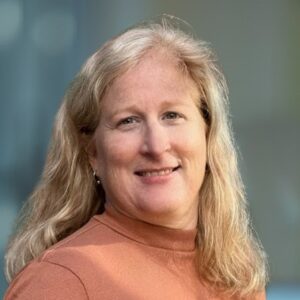 Denise Hills, Project Manager, Advanced Resources International
Denise Hills, Project Manager, Advanced Resources International
Ms. Denise J. Hills is a Project Manager with Advanced Resources International, Inc. She has over 17 years of experience in geologic energy research, focusing on unconventional resource assessment and geologic carbon storage, and specializes in science communication, education, and policy. Ms. Hills has extensive experience engaging community members, regulators, legislators, and other invested parties to develop and implement policies on energy and environmental related issues. She is currently involved with numerous CCUS projects, providing expertise in reservoir assessment, energy and environmental justice, and community engagement.
 Greg Johnston, Independent Consultant
Greg Johnston, Independent Consultant
Greg is the Lead Developer of the C-Sys carbon reduction system, dedicated to creating pathways for achieving net-zero emissions. He specializes in establishing carbon accounting frameworks, hedging greenhouse gas risks, and monetizing carbon reduction efforts. With a focus on actively reducing portfolio emissions, Greg also facilitates on-ramps to third-party reduction opportunities, driving impactful solutions in carbon management.
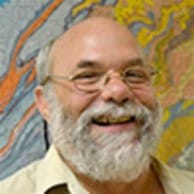 Jack Pashin, PhD, Devon Chair of Basin Research in the Boone Pickens School of Geology, Oklahoma State University
Jack Pashin, PhD, Devon Chair of Basin Research in the Boone Pickens School of Geology, Oklahoma State University
Jack Pashin joined the faculty of the Boone Pickens School of Geology at Oklahoma State University in January 2013 as the Devon Energy Chair of Basin Research. He received a B.S. degree in geology from Bradley University in 1982, and M.S. and Ph.D. degrees in geology from the University of Kentucky in 1985 and 1990, respectively. Prior to joining OSU, Dr. Pashin served as Associate Director of the Geological Survey of Alabama, where he led the Energy Program. He joined the Geological Survey of Alabama in 1988 and led numerous research projects on coalbed methane, shale gas, onshore and offshore conventional reservoirs, and geologic carbon sinks. Dr. Pashin is strongly committed to geological education, has served on graduate committees at eight U.S. and Australian universities, and is involved in a range of educational outreach initiatives. He has published extensively on a variety of topics in sedimentary geology, structural geology, and reservoir geology and has won many awards for his research.
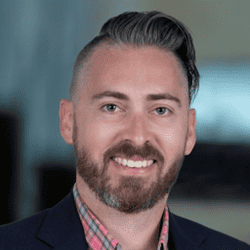 Ben Roth, Senior Geologist, Advanced Resources International
Ben Roth, Senior Geologist, Advanced Resources International
Mr. Ben Roth is a Senior Consultant with Advanced Resources International, Inc. He has over 13 years of experience working as a geologist in the oil and gas, mining, and carbon sequestration industries. Mr. Roth has extensive experience working as an exploration and operations geologist where his primary focus has been on model development and subsurface characterization. He is currently involved in overseeing multiple CCUS and hydrocarbon reservoir evaluation projects, providing guidance on reservoir characterization and Class VI permit application generation.
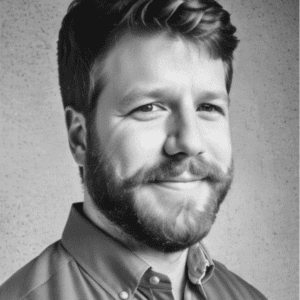 Ben Wernette, PhD, Principal Scientist and Strategic Partnerships Lead, Southern States Energy Board
Ben Wernette, PhD, Principal Scientist and Strategic Partnerships Lead, Southern States Energy Board
CCUS professional with a proven record in research, development, and project leadership. Specializing in bridging theory and application. Dr. Wernette led diverse teams in pioneering projects that showcase CCUS technologies and opportunities: from securing funding to navigating regulations, my expertise delivers tangible results.
We will be using Microsoft Teams to facilitate your participation in the upcoming event. You do not need to have an existing Teams account in order to participate in the broadcast – the course will play in your browser and you will have the option of using a microphone to speak with the room and ask questions, or type any questions in via the chat window and our on-site representative will relay your question to the instructor.
- Microsoft recommends downloading and installing the Teams app if possible. You may also use the Edge browser or Chrome.
- You will receive a separate email with a unique link to a personalized landing page which will include links to join all sessions of this event.
- If you are using a microphone, please ensure that it is muted until such time as you need to ask a question.
- The remote meeting connection will be open approximately 30 minutes before the start of the course. We encourage you to connect as early as possible in case you experience any unforeseen problems.
Please Note: This event is being conducted entirely online. All attendees will connect and attend from their computer, one connection per purchase. For details please see our FAQ
If you are unable to attend at the scheduled date and time, we make recordings available to all attendees for 7 days after the event
REGISTER NOW FOR THIS EVENT:
CCUS 101: Carbon Capture, Sequestration, Utilization & Storage
February 19, 2025 | Online
| Individual attendee(s) - $ 895.00 each | |
Volume pricing also availableIndividual attendee tickets can be mixed with ticket packs for complete flexibility |
|
| Pack of 5 attendees - $ 3,800.00 (15% discount) | |
| Pack of 10 attendees - $ 7,160.00 (20% discount) | |
| Pack of 20 attendees - $ 13,425.00 (25% discount) | |
Your registration may be transferred to a member of your organization up to 24 hours in advance of the event. Cancellations must be received on or before January 17, 2025 in order to be refunded and will be subject to a US $195.00 processing fee per registrant. No refunds will be made after this date. Cancellations received after this date will create a credit of the tuition (less processing fee) good toward any other EUCI event. This credit will be good for six months from the cancellation date. In the event of non-attendance, all registration fees will be forfeited. In case of conference cancellation, EUCIs liability is limited to refund of the event registration fee only. For more information regarding administrative policies, such as complaints and refunds, please contact our offices at 303-770-8800
Credits

EUCI is accredited by the International Accreditors for Continuing Education and Training (IACET) and offers IACET CEUs for its learning events that comply with the ANSI/IACET Continuing Education and Training Standard. IACET is recognized internationally as a standard development organization and accrediting body that promotes quality of continuing education and training.
EUCI is authorized by IACET to offer 0.7 CEUs for this event
Verify our IACET accreditation
Requirements for Successful Completion of Program
Participants must log in each day and be in attendance for the entirety of the conference to be eligible for continuing education credit.
Instructional Methods
Case Studies, Panel Discussions and PowerPoint presentations will be used in the program.
Upon successful completion of this event, program participants interested in receiving CPE credits will receive a certificate of completion.
Course CPE Credits: 7.0
There is no prerequisite for this Course.
Program field of study: Specialized Knowledge
Program Level: Basic
Delivery Method: Group Internet Based
Advanced Preparation: None
 EUCI is registered with the National Association of State Boards of Accountancy (NASBA) as a sponsor of continuing professional education on the National Registry of CPE Sponsors. State boards of accountancy have final authority on the acceptance of individual courses for CPE credit. Complaints regarding registered sponsors may be submitted to the National Registry of CPE Sponsors through its web site: www.nasbaregistry.org
EUCI is registered with the National Association of State Boards of Accountancy (NASBA) as a sponsor of continuing professional education on the National Registry of CPE Sponsors. State boards of accountancy have final authority on the acceptance of individual courses for CPE credit. Complaints regarding registered sponsors may be submitted to the National Registry of CPE Sponsors through its web site: www.nasbaregistry.org
Who Should Attend
- CCS/CCUS Project Developers
- Utilities and Energy Companies Representatives
- Environmental Policy Analysts
- Energy Policy Specialists
- Regulatory Compliance Officers
- Storage Facility & Pipeline Leaders
- CO2Technology Developers
- Oil & Gas Field Leaders
- Carbon Capture Equipment Manufacturers
- Engineering Firms
- Consultants
- Financiers
- Energy Professionals
- Researchers & Scientists
- Geologists
- Stakeholder Engagement Specialists
- Renewable Energy Specialists
